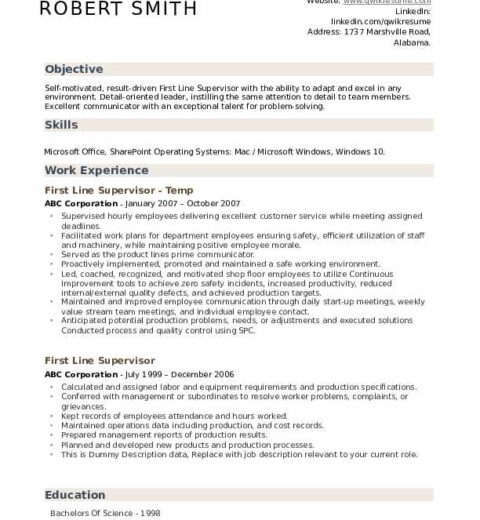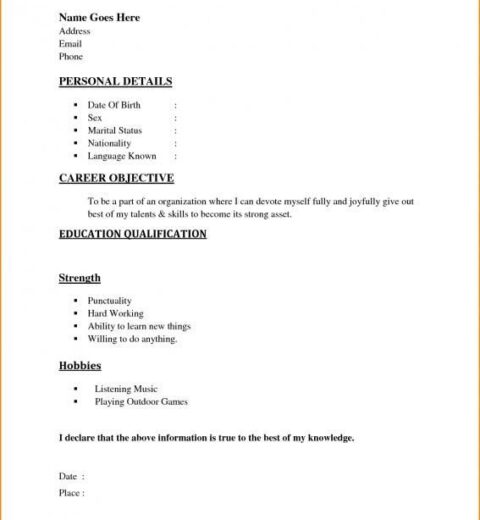Crafting a resume is often a Herculean task, an exercise in both self-promotion and strategic omission. In the realm of job applications, the adage “less is more” holds considerable weight. Understanding what to include and, equally importantly, what to leave off, is critical for making a compelling impression on potential employers. A resume’s primary objective is to showcase qualifications succinctly while avoiding extraneous details that could detract from your appeal. Let’s delve into the essentials of crafting an effective resume.
Fundamental Components to Include
A resume typically contains several key sections. These include contact information, objective or summary statements, work experience, education, skills, and possibly additional sections such as certifications or volunteer work.
1. Contact Information: Position your name prominently at the top, followed by your phone number, email address, and, if applicable, links to professional networks such as LinkedIn. Ensure that your email address is professional; avoid using nicknames or any whimsical aliases.
2. Objective or Summary Statement: This section, although sometimes overlooked, serves as a succinct introduction to who you are as a candidate. A well-crafted objective statement should not only explain your career goals but also align them with the potential employer’s vision. For instance, stating your desire to leverage your marketing expertise in a fast-paced environment can indicate both aspiration and suitability.
3. Work Experience: This is arguably the most significant section of your resume. Here, you should provide a chronological account of your previous positions, focusing on responsibilities and achievements rather than simply job titles. Use quantifiable metrics when possible; stating that you “increased sales by 25% within six months” is far more impactful than a general statement about being “responsible for sales.”
4. Education: Include your highest degree first, followed by any relevant certifications or training. If you graduated relatively recently, you may want to list your GPA if it is particularly impressive. Otherwise, entrepreneurship-focused courses or relevant workshops may bolster this section without elaborating on the less-than-exciting textbook courses.
5. Skills: The skills section should pinpoint both hard and soft skills that are pertinent to the job you are applying for. Tailor this section to emphasize proficiency with specific tools or software, as well as interpersonal attributes like leadership or communication effectiveness.
6. Additional Sections: This could include certifications, languages, publications, or volunteer work. However, it’s essential to evaluate the relevance of these additions carefully. Instead of adding fluff, consider what would truly enhance your candidacy.
What to Leave Off a Resume
Just as crucial as knowing what to include is understanding what to exclude from your resume. Many applicants inadvertently clutter their resumes with unnecessary information that can dilute their primary message.
1. Irrelevant Work Experience: Avoid including positions or experiences that hold no bearing on the job. For example, a college student might be tempted to highlight their past job as a barista when applying for a tech position; unless it taught them directly applicable skills, it may be better omitted.
2. Excessive Personal Information: Personal details such as age, marital status, or religious affiliations are not just unnecessary but could lead to unintended bias. In a professional context, your capabilities and qualifications should remain the focal point.
3. High School Information: For most individuals with college degrees or significant experience, listing high school accomplishments is often unnecessary. If a career change necessitates revision, then perhaps a brief mention can serve a purpose, but it’s generally prudent to prioritize higher education.
4. Hobbies and Interests: While including a few relevant hobbies showcases personality, a lengthy list can seem frivolous. Only mention interests that relate directly to the role or display a skill relevant to your profession.
5. Job Descriptions Instead of Achievements: Employers desire proactive candidates who bring tangible results. Describe your accomplishments in quantifiable terms rather than general duties. Instead of listing tasks performed, focus on how your actions benefited the company. For example, instead of stating “managed a team,” say, “led a team that achieved project goals 20% faster than anticipated.”
6. Generic Phrases: Clichéd phrases like “hardworking” or “team player” clutter a resume without adding value. Instead, demonstrate these qualities through your achievements and descriptions of work experiences.
Conclusion
In summary, a resume is an essential marketing tool in your career development arsenal. It must encapsulate your professional essence succinctly while making judicious choices about content. By focusing on relevant skills, tangible achievements, and maintaining clarity, you will present a polished image that resonates with prospective employers. Always strive to tailor your resume to fit the specific role, adjusting both the content and format to communicate the strongest version of your candidacy. Remember, each word counts on this vital document, so be intentional and thoughtful in your presentation.




